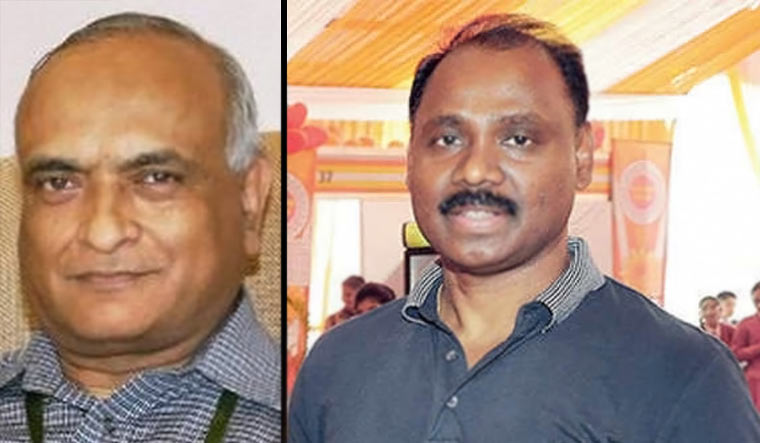Nearly three months since Article 370 was revoked, Jammu and Kashmir and Ladakh are set to transition into Union Territories (UTs) on Thursday after the Lieutenant Governors for the two UTs are sworn in.
Security has been tightened in Kashmir for the important event in view of the shutdown and clashes sparked by the arrival of members of European Parliament (MEPs).
Chief Justice Gita Mittal of the J&K High court will first administer the oath to Radha Krishna Mathur in Leh. She will then fly to Srinagar to administer the oath to Girish Chandra Murmu, a confidant of Prime Minister Modi. Murmu was his principal secretary when Modi was Chief Minister of Gujarat and has since held positions in the expenditure and revenue departments.
Despite the secretariat having been shifted to Jammu as is custom during the winter, the oath-taking ceremony for Murmu will be held in Kashmir in order to make a political statement about integrating Kashmir with the rest of India.
Neither Prime Minister Narendra Modi nor Home Minister Amit Shah will attend the ceremony in Srinagar. Modi will be in Gujarat Thursday to commemorate the birth anniversary of Sardar Vallabh Bhai Patel, while Shah would be flagging off the ‘run for unity’ event in Delhi.
No political leaders will be a part of the oath taking ceremony.
J&K Governor Satya Pal Mailk, 73, who was reportedly keen to become to the first Lt Governor of Jammu and Kashmir, has been moved from his earlier position as the Governor of Goa.
On August 5, the BJP revoked Article 370 that offered limited autonomy to Jammu and Kashmir. The move was passed by both houses of the Parliament.
The Parliament also passed the J&K Reorganisation Act that led to the bifurcation of former state Jammu and Kashmir into two UTs.
The Lt Governor will decide the provisional strength, composition and allocation of officers after the Union Territories are notified.
The status of IAS, IPS and other central service officers of J&K cadre will remain unchanged in the two new UTS.
The Act allows state employees the option to serve in either of the two UTs.



